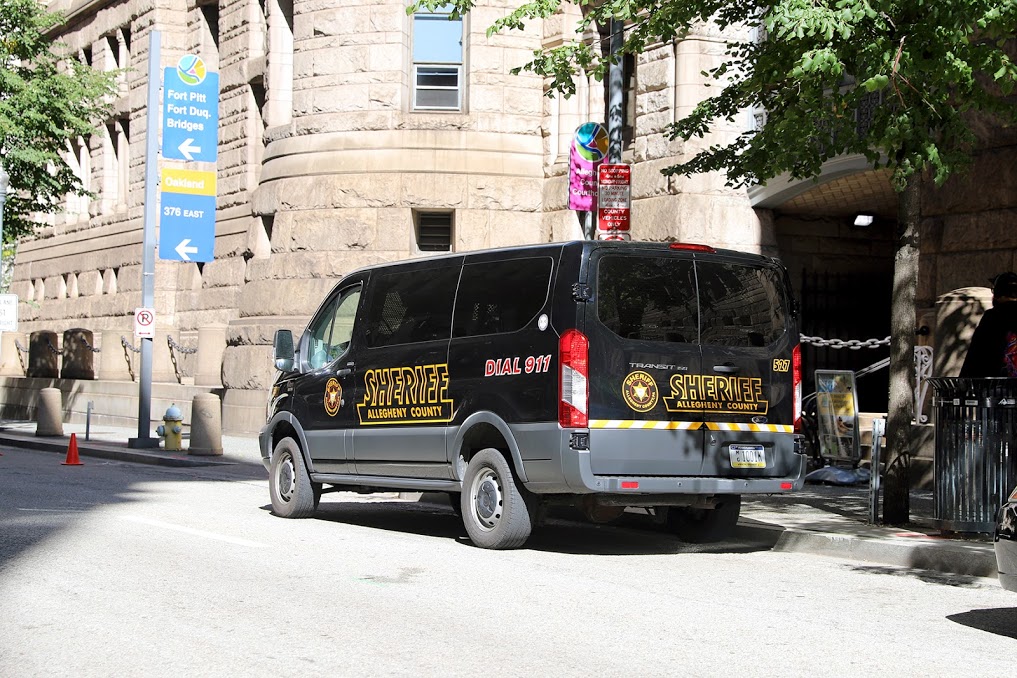Allegheny County Council acted in April 2021 to create an Independent Police Review Board to provide oversight to the county’s dozens of police agencies outside of Pittsburgh. Fourteen months on, the board has yet to hear a case or have a member sworn in, and it’s unclear when either will happen.
“It has been a bit longer than I would have liked,” said Council President Pat Catena.
Part of the delay was baked into the legislation. Board members couldn’t be seated until the first of this year. But the process of appointing board members is ongoing, with no established deadline.
The legislation says the council will select four of the board’s nine members; the chief executive will select four others; and the council and executive will need to agree on a ninth.
Council is in a protracted process of whittling a list of 15 candidates down to four appointees. While the legislation allowed for the board to be seated in January, Councilman Tom Duerr said it took extra time to find a batch of willing, suitable candidates.
Council invited the public to express interest in serving on the board in March and council members selected candidates to be among the 15 now in consideration. Today at 5 p.m., council’s Committee on Appointment Review will venture to whittle down the group.
It’s unknown how close County Executive Rich Fitzgerald is to making his picks. His spokesperson Amie Downs said he will make selections after council makes its own, but did not offer a specific timeline.
Once council and Fitzgerald separately finish the appointment process, the board’s jurisdiction will be limited at the start.
By law, its investigative and reporting powers will initially only cover Allegheny County’s own police force, which patrols county parks and airports and assists local police on complex cases including homicides. Municipal police forces, which number around 100, will be included if their local officials opt in.
The board will not have the power to discipline police officers, but it will respond to complaints from the public with formal investigations, including public hearings and sworn testimony. If the board’s findings sustain a complaint, it can recommend disciplinary action, which requires a written response from the police department involved. The board can also make criminal referrals to the district attorney or state attorney general.
The number of municipalities that choose to subject their police departments to board oversight will depend on the efforts of council members, and future board members, to coax them to participate. Democratic Councilor Bethany Hallam, elected at-large, said she’s already done outreach to about 15 municipalities and has received mixed responses.
“I definitely got told to go screw myself a couple times,” Hallam said, but “there are willing councils all over the county that are interested in it.”
Duerr, who cosponsored the legislation to create the board, said recruiting municipal participation will be a “matter of momentum.”
“If you get a municipality next to one that wasn’t considering it, that could start a conversation,” said Duerr, a Democrat from the South Hills. “If you get one, maybe you get a bunch regionally.”
Catena said he is focused on the appointment process for now, and outreach to municipalities will begin in earnest once it is finished, with the new appointees joining council members in lobbying municipalities. “It will be an all-hands approach,” he said.
Hallam said that while it is the municipal commissions and councils that will make the decision of whether to submit to board oversight, the decision should really be “up to the communities that are policed.”
Duerr said in addition to lobbying municipal officials directly, council members should take a bottom-up approach and try to rally community support for opting in so officials feel more public pressure to do so.
The legislation that created the review board does not require the board or the county government to solicit each municipality to participate or to offer information to them. Those tasks entirely depend on the initiative of officials who want the board to be robust.
JoEllen Marsh, a program director at Pitt’s Congress of Neighboring Communities [CONNECT], which seeks to foster collaboration between the city and its neighbors, said Allegheny County’s staggering number of individual municipalities is a barrier to rolling out initiatives such as the review board.
She predicted some interest in the board among municipal leaders, though they may not know about it yet. “In my experience, there are a lot of local government stakeholders who are interested in working with police in ways that are new and different,” she said.
Sharpsburg’s then-Mayor Matthew Rudzki said in 2019 that it would like to opt into the review board if it were created. (Rudzki is now a district judge.) Other than that, Hallam said she does not expect there to be any takers before the board members are seated.
The 15 IPRB candidates up for council consideration are: Daeja Baker, Lynn Banaszak, Phyllis Comer, Richard Garland, Stacey Hawthorne, David Mayernik, Robert Meinert, Keith Murphy, Thomas Shook, J.D. Williams, Chloe Persian Mills, Chris Kumanchik, Justin Leavitt Pearl, Tammy Martin and Michael Louis Pastorkovich.
(Update 6/29: The council’s Committee on Appointment Review met Tuesday night and selected six candidates for further consideration. The six are Mayernick, Murphy, Persian Mills, Garland, Pearl and Banaszak. Catena said he will now refer the matter to a special committee to pick four appointees.)
Fitzgerald has no statutory deadline to make his selections and is working outside of council’s appointment process. A council member and council’s clerk each told PublicSource that the review board cannot begin operating until there are five members sworn in — meaning the timing of the board’s launch depends on Fitzgerald making one or more of his appointments.
“Given my experience on council. It’s really not a surprise” that the process has taken this long, Duerr said. “Once [the legislation] passed, we knew there was more work to do to get it up and running.”
Charlie Wolfson is PublicSource’s local government reporter and a Report for America corps member. He can be reached at charlie@publicsource.org and on Twitter @chwolfson.
Keeping local government accountable to you is our job at PublicSource. Civic Briefs is an ongoing series to share more important news and information with you in real time.







